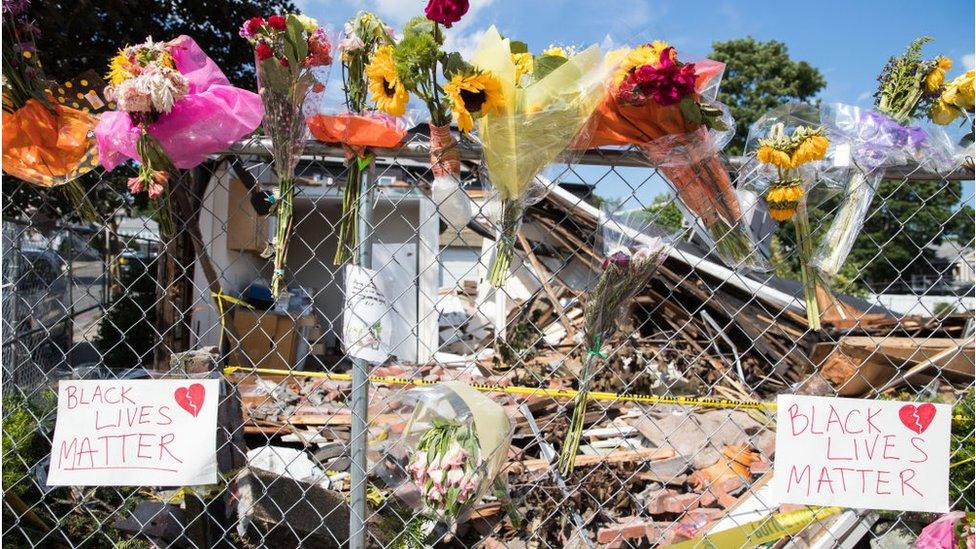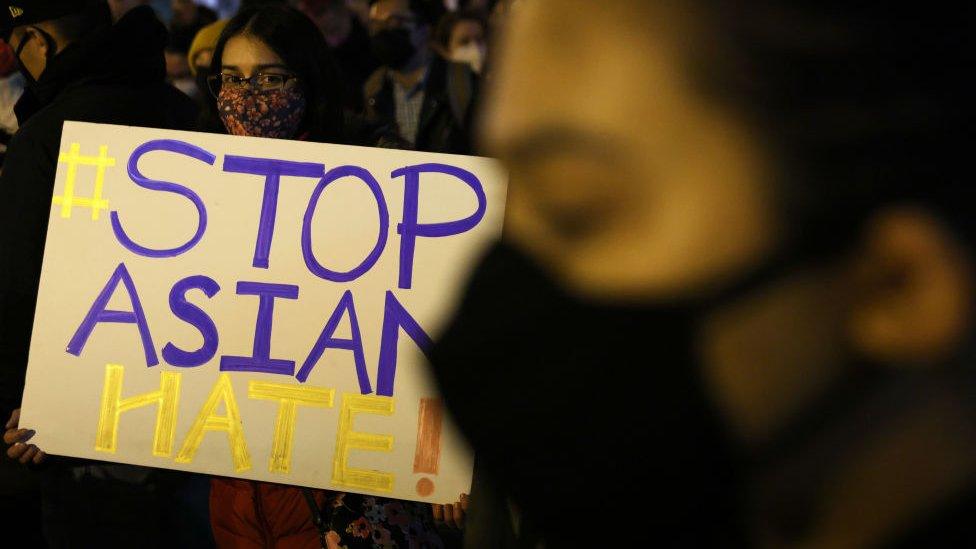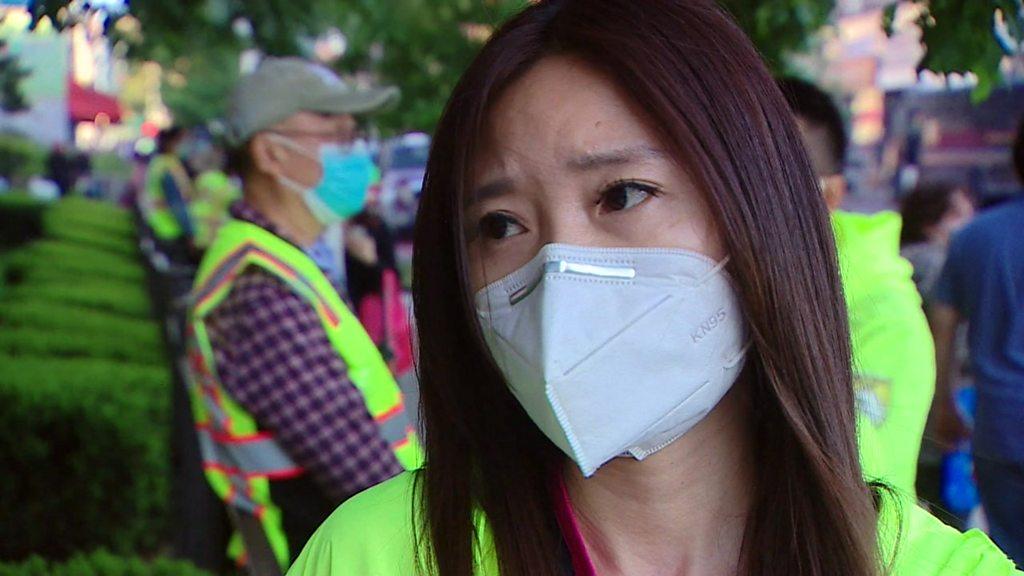FBI hate crime reports spike to 12-year high in 2020
- Published

A memorial at the site of a June attack in Massachusetts that is being treated as a hate crime
US hate crimes hit a 12-year high in 2020, with over 10,000 people reporting offences related to their race, gender, sexuality, religion or disability.
An annual FBI report released on Monday found the number of reported crimes against Asian and black Americans in particular surged last year.
Reports were up 70% and 40% among both groups, respectively, with black people being the most targeted group overall.
Hate crimes have increased in the US almost ever year since 2014.
There were more than 7,700 criminal incidents reported to the FBI in 2020 - the most since 2008, which saw 7,783 incidents.
As law enforcement groups are not mandated to submit hate crime data to the FBI, the numbers in the annual report is likely an undercount. In addition, local prosecutors may differ in what is charged as a hate crime.
Last year's sharp rise in crimes targeting Asian Americans came as the Covid-19 pandemic hit the US. There were 274 crimes reported against those of Asian descent.
Advocates have linked the rise in anti-Asian attacks to rhetoric blaming Asian people for the spread of the virus.
While crimes against black Americans did not see as large a spike from 2019, there were 2,755 reported incidents, making African Americans the largest victim category.
The FBI said nearly 62% of victims were targeted due to race or ethnicity biases. Offences based on religion and sexual orientation were the next most common, at around 13% and 20%.
Most often, the offences were classified as intimidation, though 18% were aggravated assault crimes.
Of the over 6,400 known offenders, 55% were white.
US Attorney General Merrick Garland on Monday said the FBI's report "confirms what we have seen and heard through our work and from our partners".
Asian women made to "feel invisible" in America
- Published19 March 2021

- Published31 May 2021
